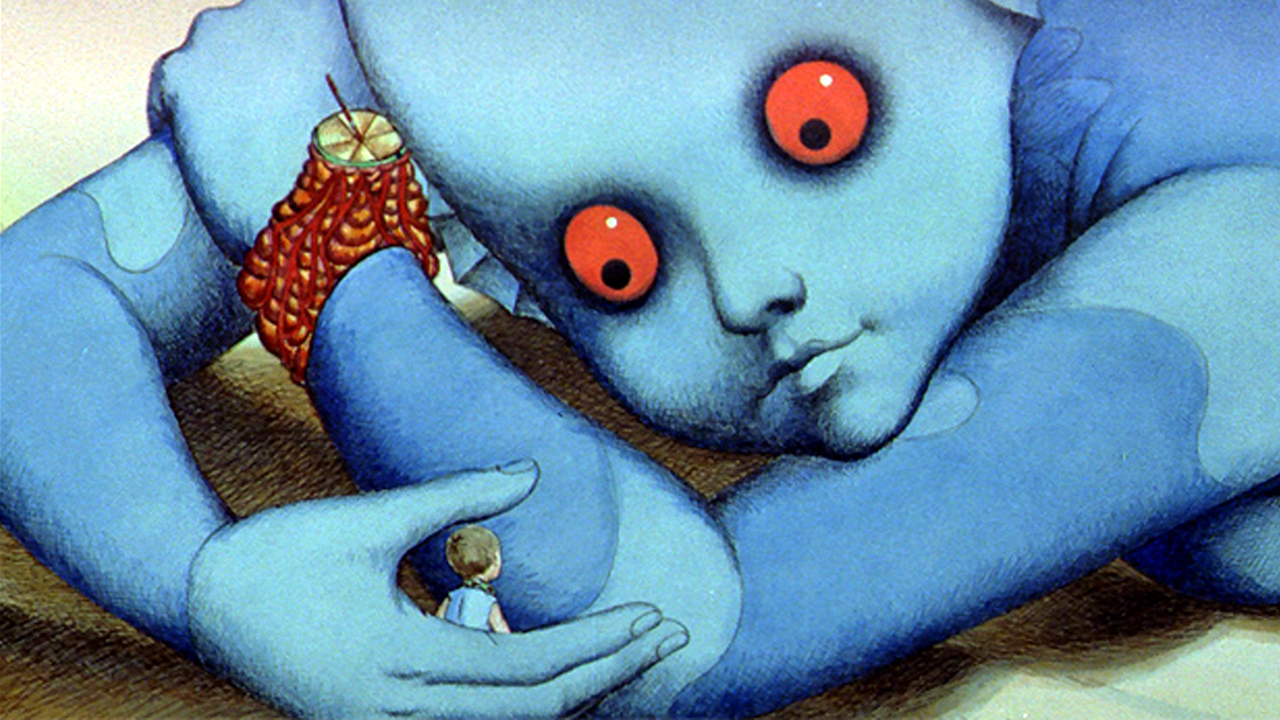Thursday, August 30, 2018
Wednesday, August 29, 2018
Tuesday, August 28, 2018
The night of 30-31 December, 1862: the loss of USS Monitor
Image from Harper's Weekly published in 1863 showing USS Monitor sinking in a storm off Cape Hatteras. USS Rhode Island aided in the rescue of the crew. Modern divers investigating the wreck discovered the probable cause of the sinking: the separation of the upper and lower hull sections in heavy seas.
Monday, August 27, 2018
Bienvenido Bañez, Jr. featured at the Metropolitan Museum of Manila
The following is taken from an announcement appearing in the SunStar of Davao, Philippines.
"My City, My SM, My Art", a weeklong showcase of the different paintings and sculpture by local artists based in Davao City and whose skill and mastery of the craft had been influenced by Victorio Edades.Please click HERE for the full article.
The instillation highlights how Edades had changed and established the modernist way of visual arts creation in the city. Among the works displayed there were of surrealist Bienvenido Bañez, Jr. and sculptor Jimmy Ang, who both had been trained by Edades himself.
Bañez had been tagged by world-famous surreal and American artist Terrance Lindall as the “greatest living surrealist in the Philippines”.
Bañez’ works revolve around the reign of evil in the world – the perpetrators of war, poverty, injustice, environmental degradation, cultural decadence, and terrorism. In 2002, Bañez won the Asian Fellowship Painting Competition of the Vermont Center in the United States.
Mr. Bañez's work has appeared in the international literary anthology Emanations. Also, he has an illustration in my upcoming novel, Echoes.
 |
| from left, Terrance Lindall of the WAH Center, John Dugdale Bradley of Milton's Cottage, and Bienvenido Bañez, Jr. photo: Kelly O'Reilly |
Sunday, August 26, 2018
Saturday, August 25, 2018
"Did We talk about Hesse?" (M-A Berthier on Hermann Hesse)
I recently asked physicist (and novelist) M-A Berther about Herman Hesse. My missive began innocently enough but prompted a series of interesting reflections. I began as follows:
Did we talk about Hesse?Siddhartha was... too Buddhist for me! Fatalistic, preachy... nihilistic in its way.Steppenwolf was pretty good. Some loner who likes to go to the orchestra and zone out on music. Kind of “unremarkable” in its bohemian affectations--after living through the end of the 20th century, bohemians, their affectations, and their fantasies... such stuff just doesn't seem that hip, or daring, or wild, or subversive, or whatever it is supposed to be. I recall the novel [Steppenwolf ] becomes slyly amusing as things melt down at the end.
I was young when I read both. I'd probably be unable to finish them now.Is The Glass Bead Game good? In the late-70s, I recall a friend attending Oberlin saying people there were impressed.
M-A's responses are refreshing (and more useful than my off-hand recollections).
Hesse is an interesting case. The two books that are usually cited as his best are Steppenwolf, which to my mind seems both a logical continuation of his earlier work in the Bildungsroman and a foray into a sort of occult mysticism similar to that in Gustav Meyrink's novel Der Golem. (As it happens, in university in 1974, I wrote an essay comparing and contrasting these two novels in a class on 20th Century German literature.) The Glass Bead Game (called peculiarly Magister Ludi in English translation) strikes me as a rather Nietzschean production, an attempt to find something resembling values after we realize that most our accepted systems of values have serious deficiencies. Hesse in a curious way produced a novel that seems to reflect some of the same features (even the literary technique and voice if you will) of his friend Thomas Mann's Doktor Faustus—but Mann's book is much darker.There is an early novel by Hesse, called I think Unterm Rad (beneath the wheel) which is a foray into the German school novel, a peculiar genre that also includes Robert Musil's Törless and Rilke's short story “Die Turnstunde” (Gym Class). Hesse's novel is set in what seems a religious school; Musil's novel and Rilke's story in a military school. All are absolutely ghastly because of the subject matter. Rilke's story and Musil's short novel are well-crafted and intelligent. Hesse's book is "okay," but I feel no compulsion to re-read it.I have not read anything by Hesse since 1971 or 72. When forced to write that essay comparing his book to that of Meyrink, I relied entirely on memory of Steppenwolf. That being said, I recalled it pretty well (and still do). Steppenwolf may also contain some Expressionist elements, I think, but I wouldn't want to revisit the text. I think it's important as a foundation of 20th century German literature, but I doubt I'll live long enough to be in the mood to re-read it. Alas, one curse of very good memory is the inability to re-read many books unless there is more of value than "what happened next?"Steppenwolf was, I seem to recall, perched teetering on a fundamental idea of the conflict between the classically-poised music of Mozart and his operas versus the romantic extremism and Angst and Nihilism of Wagner and the philosophy of Nietzsche. Poor Nietzsche -- at times I used to wish that writers of German fiction would leave the poor bastard alone.The most problematic of Hesse's novels is probably Demian today. Circa 1974, my professor (a septugenarian Czech German) said, "Ladies and gentlemen, when I was your age, this book was a book of my generation. Now, peculiarly, it seems to be one of yours, too..." Well, it was already waning rapidly. One of my high school classmates was reading it in '71 and said at the beginning, "This is one of the most important and thought-provoking books I have ever read." Yawn. I suggested he stick to computer science.Hesse appealed to earnest adolescents in the '60s and '70s because his concerns seemed important to us at the time. I find a lot of his work pedestrian on recollection. I have nothing against his work, but I would simply remark, "Not my cup of sock squeezings." However, I read a lot of Hesse's novels before I was 17, so I am freed of the necessity to shore up gaps in my erudition.There was one book by Hesse that, when I read it at 15, struck me as, um, peculiar. I refer to Narziss und Goldmund. It's couched in the form of an historical novel on the Middle Ages. It is comprised of a variety of sexual elements that at the time struck my 15 year old self as vaguely perverse. I may be more tolerant now, but I don't plan to re-read it.Oh my. Do not push my button marked "Hermann Hesse." I realise that I recall all of the novels and a certain amount of his verse and essays with excessive clarity, god knows why. I caught myself before I embarked on a series of comments on Siddhartha and his novel Die Morgenlandfahrt (Journey to the East) as sort of lame Buddhist mysticism....I had a "German Literature obsession" at one point, compounded by a superlative professor in the subject at the university level.Sorry, but to answer your initial question: I do not believe we have ever previously discussed Hesse. Clearly, it's not a good subject to nudge me on. Do not get me started on the Mann brothers or Musil or Döblin, either.There is a tradition that grew out of German Romanticism of books that dealt seriously with artists: painters, poets, musicians. These culminated in some of the 20th century books by Mann, Rilke, Hesse, and perhaps Musil. (I'm not sure quite how to classify Ulrich in Der Mann ohne Eigenschaften). But one of the finer representatives of the tradition was done early by Eduard Mörike: Mozart auf der Reise nach Prag (Mozart's Journey to Prague). These works are often not devoid of a certain Romantic period sentimentality, but when the writer can control it, it's palatable.Thinking of Mörike always calls to mind that gorgeous throw-away joke in Dinesen's The Deluge at Norderney: "But no human being with a feeling for greatness can possibly believe that the God who created the stars, the sea, and the desert, the poet Homer and the giraffe, is the same God who is now making, and upholding, the King of Belgium, the Poetical School of Schwaben, and the moral ideas of our day." Mörike was a representative of the Poetical School of Schwaben, I think.
M-A Berthier is the author of Some Rumor of Strange Adventures. It is a challenging novel, remarkably intense, and replete with literary allusions, curious hearsay, and obstreperous satire. Please click HERE to learn more.
Friday, August 24, 2018
Kono Bairei "Grasshopper" ca.1890
The strong brush strokes suggesting the leaf present a wonderful counterpoint to the verisimilitude of the rest of the painting--the green cricket. Emerging (or moving out) from the scene, away from the moment. It's about art.
Wednesday, August 22, 2018
A Note on Synoptic Precision in Analytic Philosophy
Hobbes, in order to daunt the reader from objecting to his friend Davenant's want of invention, says of these fabulous creations in general, in his letter prefixed to the poems of Gondibert, that "impenetrable armours, enchanted castles, invulnerable bodies, iron men, flying horses, and a thousand other such things, are easily by them that dare". These are girds at Spenser and Ariosto. But, with leave of Hobbes (who translated Homer as if on purpose to show what execrable verses could be written by a philosopher), enchanted castles and flying horses are not easily feigned, as Ariosto and Spenser feigned them; and that just makes all the difference.Here Hunt's remark about philosophers--in this case Hobbes--being unable to say poetic things underscores a point about poetic talent not being after all an easy thing to come by, and controverts Hobbes's condescension, which are both properly done on Hunt's part. But when one considers Wittgenstein's emphasis on the place of the "synoptic surview" in the analysis of propositions, it is perhaps worth giving the remark a second look.
-- Leigh Hunt, Imagination and Fancy,1844
It is necessary for a philosopher to exercise great skill in telling stories about the ways propositions, phrases, words and concepts are understood and misunderstood. In the process of examining these precisely-rendered synoptic overviews, illusion, as well as insight, are revealed.
 |
| Leigh Hunt, engraved by H. Meyer from a drawing by J. Hayter |
Monday, August 20, 2018
Saturday, August 18, 2018
Comet C/2017 S3
Comet C/2017 S3 recently flew past the Earth . When I first learned of the "Green Comet" in early July, I was looking forward to some interesting views. Unfortunately, the comet is now so close to the Sun that it is not visible. Moreover, when the comet departs it will be too far away to see. Please click HERE for the most recent story I found, and HERE for resources to track the comet.
Friday, August 17, 2018
Soon...
The novel Echoes is near completion. Stories from Emanations 7 are going out to the illustrators.
Down scope.
Down scope.
Thursday, August 16, 2018
International Authors on facebook
There are two International Authors facebook pages:
This page is for general discussion.
This page is an automatic "feed" that links to a stream of blog posts from a half dozen or so members of the International Authors consortium.
Perhaps at some time in the future we'll discuss this at a deeper level. Right now, however, I'm not bothered.
Tuesday, August 14, 2018
Robert J. Wickenheiser & Terrance Lindall: The Milton Projects
This new book presents an informative (and remarkably candid) look at the world of big collectors, big galleries, and big commissions.
Please click HERE for additional information.
Monday, August 13, 2018
Fantasy Worlds
This Fall, I am teaching a course in fantasy literature, film and art. The texts for the course include the International Authors Fantasy Words anthology, Dover's oversize Rime of the Ancient Mariner (with the Doré illustrations), and Philip K. Dick's UBIK. Among the films we will view are Ulysses, Excalibur, The Tragical History of Dr. Faustus, Young Goodman Brown, Metropolis, Fantastic Planet, Allegro Non Troppo, and possibly an episode or two of The Prisoner.
 |
| from Fantastic Planet |
Sunday, August 12, 2018
Saturday, August 11, 2018
"Pataphysics"
In the on-line Merriam-Webster, "pataphysics" is defined as "intricate and whimsical nonsense intended as a parody of science." Looking around the internet, I discovered the term was coined by French writer Alfred Jarry. Here are a few links treating the word:
Wikipedia
The Guardian
3:AM Magazine
Le Collège de ’Pataphysique
I was moved to read about the term because there is a journal called Pataphysics that will soon publish selections form Michael Butterworth's forthcoming book My Servant the Wind. There will also be selections from Mr. Butterworth's new book in the upcoming volume of Emanations.
Wikipedia
The Guardian
3:AM Magazine
Le Collège de ’Pataphysique
I was moved to read about the term because there is a journal called Pataphysics that will soon publish selections form Michael Butterworth's forthcoming book My Servant the Wind. There will also be selections from Mr. Butterworth's new book in the upcoming volume of Emanations.
Friday, August 10, 2018
Tuesday, August 7, 2018
Sunday, August 5, 2018
Saturday, August 4, 2018
Subscribe to:
Comments (Atom)









































